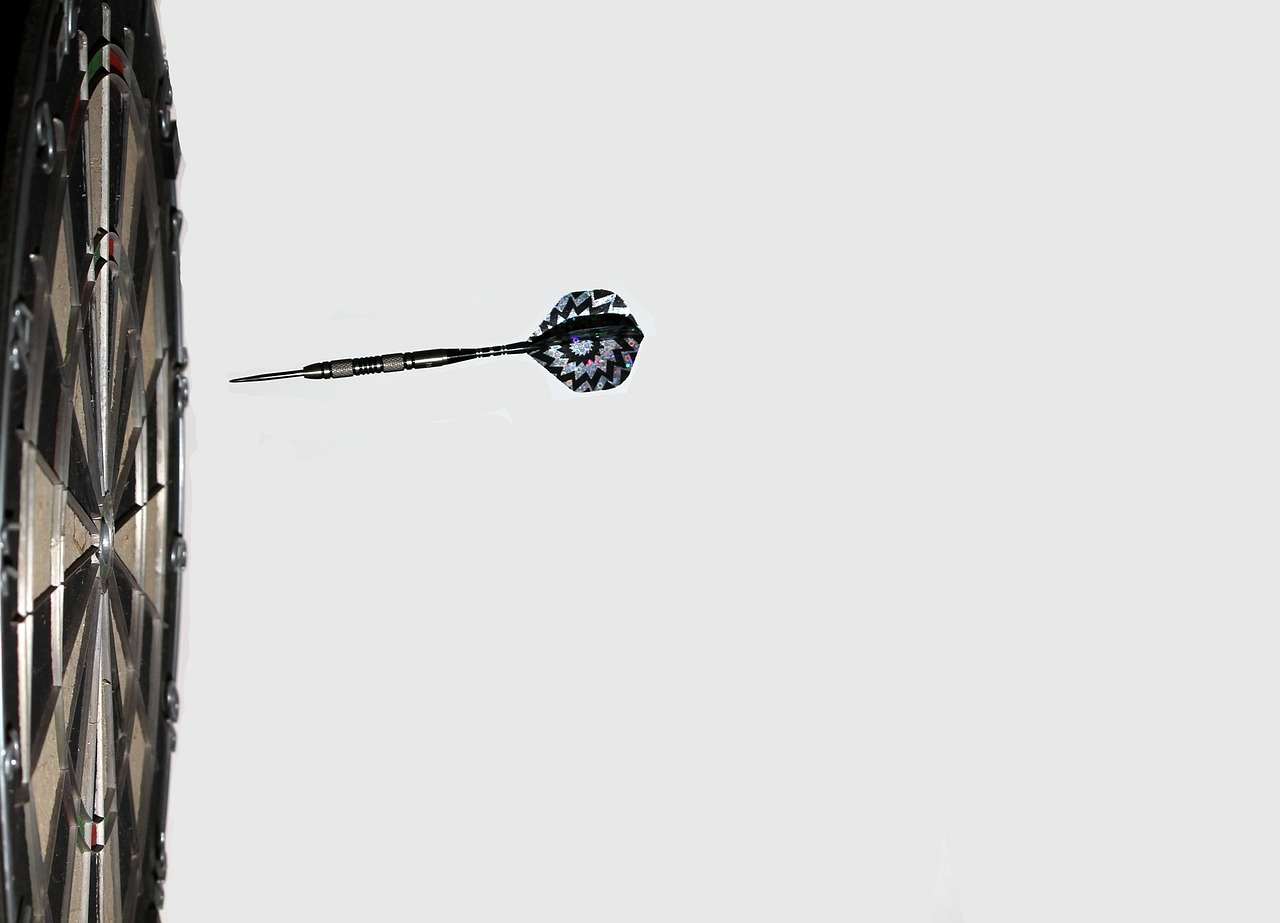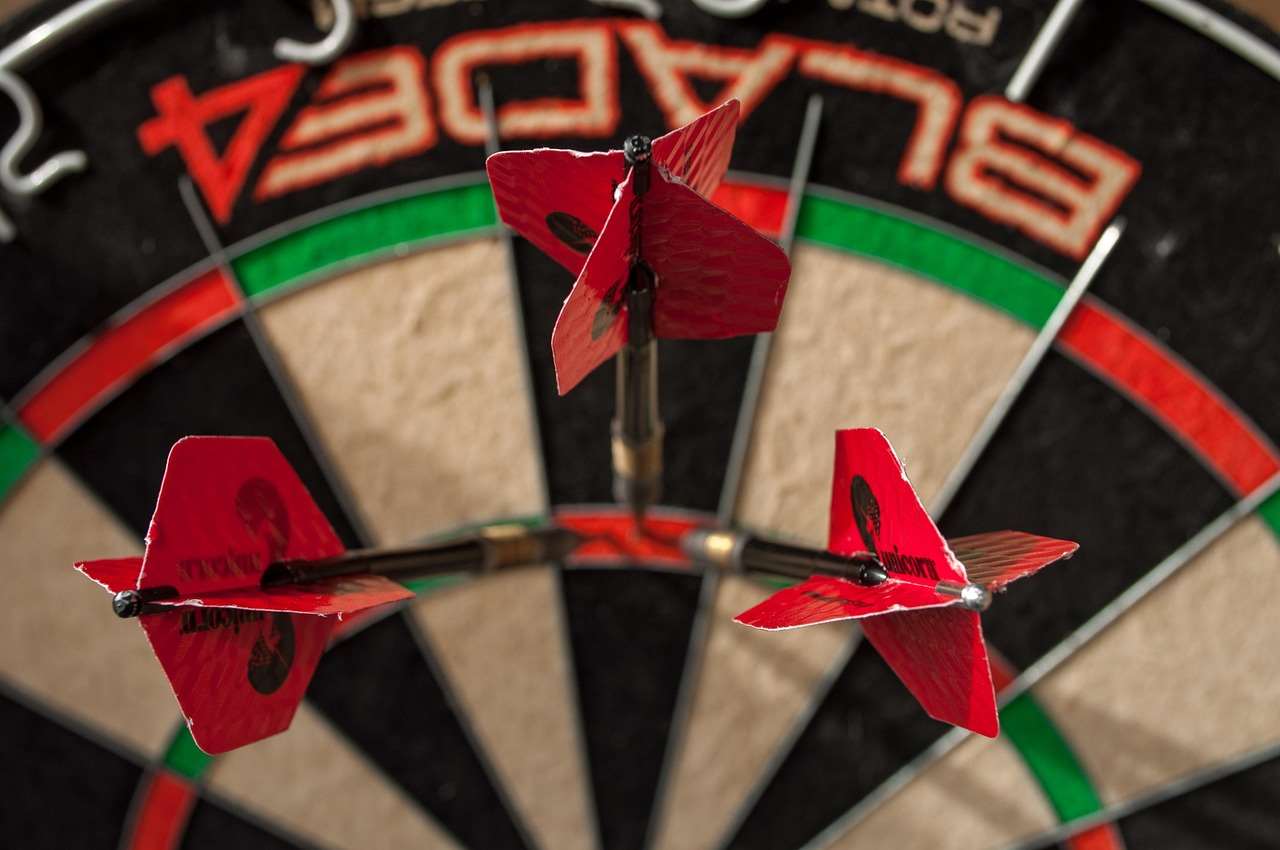In most professional darts matches, it’s the **caller**, also known as the **scorer** or **MC (Master of Ceremonies)**, who announces the scores. This article dives deep into **who calls the scores in darts**, exploring their crucial role, responsibilities, and the qualities that make a great caller.
⚠️ Still Using Pen & Paper (or a Chalkboard)?! ⚠️
Step into the future! The Dart Counter App handles all the scoring, suggests checkouts, and tracks your stats automatically. It's easier than you think!
Try the Smart Dart Counter App FREE!Ready for an upgrade? Click above!
The Vital Role of the Darts Caller
The caller is far more than just a score announcer; they’re integral to the entire darts experience. They maintain the game’s flow, build tension, and create an atmosphere that captivates both the players and the audience. The caller’s voice is the soundtrack to the match, dictating the rhythm and punctuating key moments.
A good caller enhances the drama and excitement of the game, adding to the overall spectacle. They are also responsible for ensuring accuracy in scoring, which is paramount to the integrity of the competition. The energy they bring can be infectious, boosting player morale and engaging the crowd.
Key Responsibilities of a Darts Caller
- Announcing the Player: Before each player’s turn, the caller announces their name, often with a bit of fanfare to build anticipation.
- Calling the Score: After each throw, the caller accurately calculates and announces the score achieved. This includes indicating doubles and trebles (e.g., “Double 20,” “Treble 19”).
- Announcing the Remaining Score: Crucially, the caller states the player’s remaining score after each visit to the oche, keeping everyone informed of their progress towards checkout.
- Verifying Checkouts: The caller must confirm that the player has successfully checked out, ensuring it’s done legally (ending on a double or the bullseye).
- Maintaining Order: The caller helps maintain order and pace within the match, ensuring the smooth progression of play.

Qualities of an Excellent Darts Caller
Not just anyone can step up to the microphone and call a darts match. It requires a specific set of skills and personality traits to excel in this role. Some of the key qualities of an excellent darts caller include:
- Accuracy: Flawless accuracy is non-negotiable. A single miscalculation can have serious consequences, potentially costing a player the game.
- Clarity: The caller must have clear and concise enunciation, ensuring that everyone can understand the scores, even in a noisy environment.
- Speed: The caller needs to keep up with the pace of the game, announcing scores quickly and efficiently without rushing.
- Presence: A good caller has a strong stage presence, commanding attention and engaging the audience with their voice and demeanor.
- Personality: A touch of showmanship can go a long way. Callers with personality can inject humor and excitement into the proceedings, elevating the overall atmosphere.
- Knowledge of the Game: A deep understanding of the rules and intricacies of darts is essential for accurate scoring and informed commentary.
Furthermore, the ability to handle pressure is key. Callers are often under immense scrutiny, particularly in high-stakes matches, and they need to remain calm and focused under pressure. A genuine passion for the sport is also beneficial, as it translates into enthusiasm and authenticity.
The Role of Technology in Modern Darts Scoring
While the caller remains a central figure, technology plays an increasingly important role in modern darts scoring. Electronic scoreboards and scoring systems are now commonplace, providing instant updates and eliminating the potential for human error. These systems display the current score, remaining score, averages, and other relevant statistics. However, even with these advancements, the caller’s role remains indispensable. They provide the human element, the voice that brings the game to life. Some apps, like a Mobile dart scorer (https://dartcounterapp.com/), help players keep track of their scores at home or in practice, but they don’t replace the need for a professional caller in tournaments.

Famous Darts Callers and Their Impact
Over the years, several darts callers have become household names, renowned for their distinctive styles and contributions to the sport. People have even started to look for a dartboard backdrop to improve their viewing experience.
Recognizable Voices of Darts
One of the most recognizable voices in darts history is undoubtedly **Russ Bray**. Known for his gravelly voice and iconic catchphrases, Bray has been calling matches for over two decades and is widely regarded as one of the best in the business. His dramatic delivery and enthusiastic personality have made him a fan favorite.
Another prominent caller is **Kirk Bevins**, who is known for his meticulous accuracy and calm demeanor. Bevins brings a sense of professionalism and authority to the role, ensuring that every score is called with precision. He brings a different style than Russ Bray, demonstrating that there isn’t just one mold a successful caller must fit.
These callers, and others like them, have played a significant role in popularizing darts, attracting new fans, and elevating the sport’s profile. Their voices are synonymous with the thrill and excitement of the game.
Training and Development for Aspiring Darts Callers
Becoming a professional darts caller is not something that happens overnight. It requires dedication, practice, and a willingness to learn. While there’s no formal qualification required, aspiring callers often hone their skills through practice sessions, local tournaments, and mentorship from experienced professionals. The following steps are often taken by those looking to become a scorer in darts:
- Practice: The best way to improve your calling skills is to practice regularly. Call scores from recorded matches, local games, or even practice sessions in your own home.
- Record Yourself: Record yourself calling scores and analyze your performance. Identify areas for improvement, such as clarity, speed, and accuracy.
- Seek Feedback: Ask experienced callers for feedback on your performance. They can provide valuable insights and guidance.
- Attend Tournaments: Attend local darts tournaments and observe how professional callers operate. Pay attention to their techniques, timing, and stage presence.
- Network: Network with other callers, players, and organizers in the darts community. Building relationships can open doors and provide opportunities.

There are now even some organizations that offer training courses and workshops for aspiring darts callers. These courses provide structured learning, covering topics such as scoring rules, microphone techniques, and stage presence.
Potential Pitfalls for Darts Callers
Even the most experienced darts callers can occasionally encounter challenges. Some common pitfalls to avoid include:
- Miscalculations: As previously mentioned, accuracy is paramount. Double-check your calculations before announcing the score to avoid embarrassing errors.
- Mumbling: Ensure your enunciation is clear and concise. Avoid mumbling or speaking too quickly, as this can make it difficult for people to understand you.
- Showing Bias: Remain neutral and impartial at all times. Avoid showing favoritism towards any particular player.
- Getting Distracted: Stay focused on the game and avoid getting distracted by external factors, such as crowd noise or player interactions.
- Lack of Enthusiasm: While remaining neutral, avoid being monotone or unenthusiastic. Inject some energy and excitement into your calling to enhance the atmosphere.
By being aware of these potential pitfalls, callers can take steps to avoid them and ensure that they provide a professional and enjoyable experience for everyone involved. Furthermore, understanding things like the dart shaft chart can indirectly help with the general understanding and context around the game.

The Future of Darts Calling
As darts continues to evolve, so too will the role of the caller. While technology may streamline some aspects of the scoring process, the human element will remain essential. In the future, we may see callers incorporating more data and analytics into their commentary, providing fans with deeper insights into the game. There’s also the possibility of callers using more advanced microphone techniques and audio effects to enhance the overall experience. The recent season of bv darts seizoen 2 has demonstrated the growth of darts viewership and further cements the important role callers have.
The fundamental qualities of accuracy, clarity, and presence will always be in demand. However, callers who can adapt to new technologies and embrace innovative approaches will be best positioned to succeed in the future.
Who Calls The Scores In Darts: A Recap
Ultimately, **who calls the scores in darts** is the caller, a vital part of the sport, acting as both scorekeeper and emcee. They are responsible for accurately announcing scores, maintaining order, and creating an atmosphere that engages both players and fans. Whether it’s a target jackpot darts game or a professional match, understanding the caller’s role improves the viewing experience. By honing their skills, callers can play a significant role in shaping the future of darts, ensuring that it remains a thrilling and captivating sport for generations to come.

If you’re interested in learning more about darts, consider joining a local league, attending a tournament, or simply practicing your skills at home. You might even consider trying your hand at calling scores yourself – you never know where it might lead!
Don’t forget to explore our other articles for more in-depth information about different aspects of the game.
Hi, I’m Dieter, and I created Dartcounter (Dartcounterapp.com). My motivation wasn’t being a darts expert – quite the opposite! When I first started playing, I loved the game but found keeping accurate scores and tracking stats difficult and distracting.
I figured I couldn’t be the only one struggling with this. So, I decided to build a solution: an easy-to-use application that everyone, no matter their experience level, could use to manage scoring effortlessly.
My goal for Dartcounter was simple: let the app handle the numbers – the scoring, the averages, the stats, even checkout suggestions – so players could focus purely on their throw and enjoying the game. It began as a way to solve my own beginner’s problem, and I’m thrilled it has grown into a helpful tool for the wider darts community.